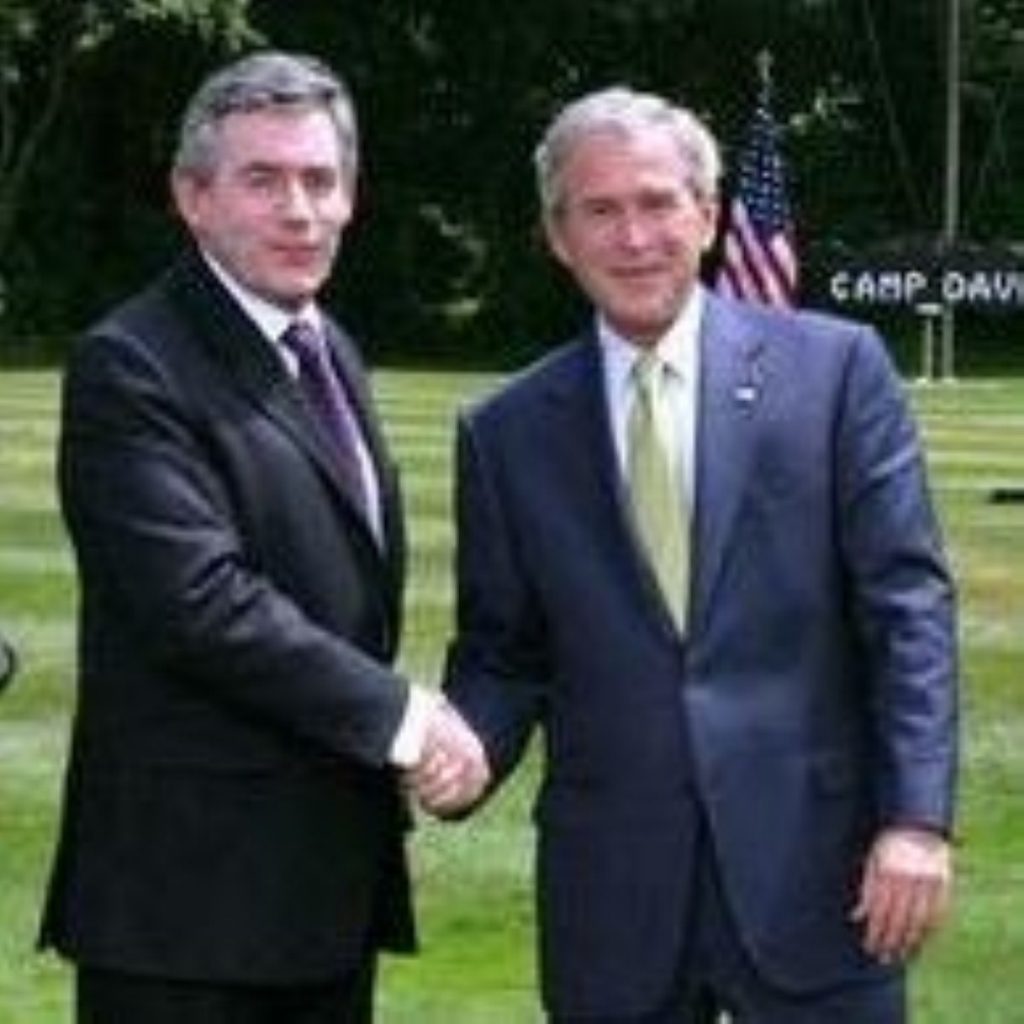Brown ‘senses transatlantic opportunity’
Gordon Brown said he senses the opportunity for closer European relations with the United States in a major foreign policy speech in Boston.
The prime minister used the John F Kennedy memorial lecture to outline his vision for reforms to global institutions, but opened with a restatement of the traditional commitment to transatlantic relations.
Mr Brown raised a laugh when he suggested it was “perhaps risky” for him to be speaking in Boston shortly before Patriots Day.
But he added: “I am pleased that over the past half century the special relationship between America and Britain which John Kennedy prized remains strong and enduring – so firmly rooted in our common history, our shared values and in the hearts and minds of our people that no power on earth can drive us apart.”


The prime minister said he “sensed” a chance to improve on the US’ current relations with Europe.
“Now is an opportunity for an historic effort in cooperation: a new dawn in collaborative action between America and Europe,” he declared.
“I believe all European leaders can work with America to forge stronger transatlantic links.”
He then outlined his desire to push forward “the boldest of global reforms” to counter the pressing issues of the day, including climate change, terrorism, poverty and instability.
“We urgently need to step out of the mindset of competing interests and instead find common interests – summoning up the best instincts and efforts of humanity in a cooperative endeavour to build new international rules and institutions for the new global era,” Mr Brown added.
He was keen to press the urgency of the need for reform, saying such discussions could no longer be “academic debate”.
Instead calls for practical measures like a single carbon market for climate change and a new international financial architecture to tackle the credit crunch were presented as “global solutions” for “global problems”.
And he finished: “For the first time in human history we have the opportunity to come together around a global covenant, to reframe the international architecture and build the truly global society.”

